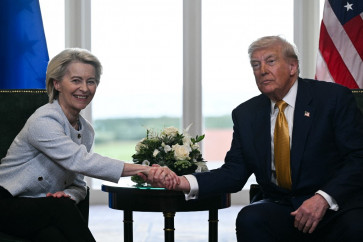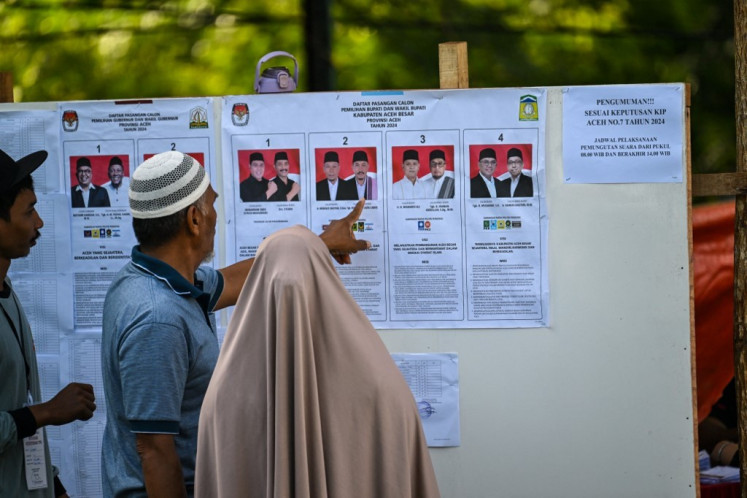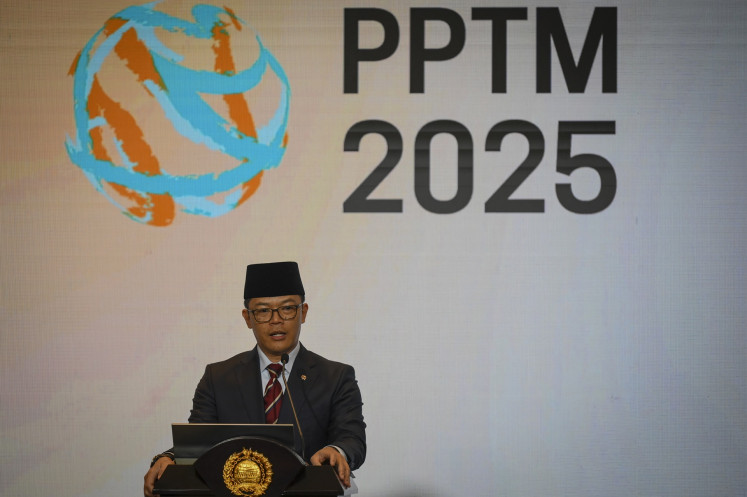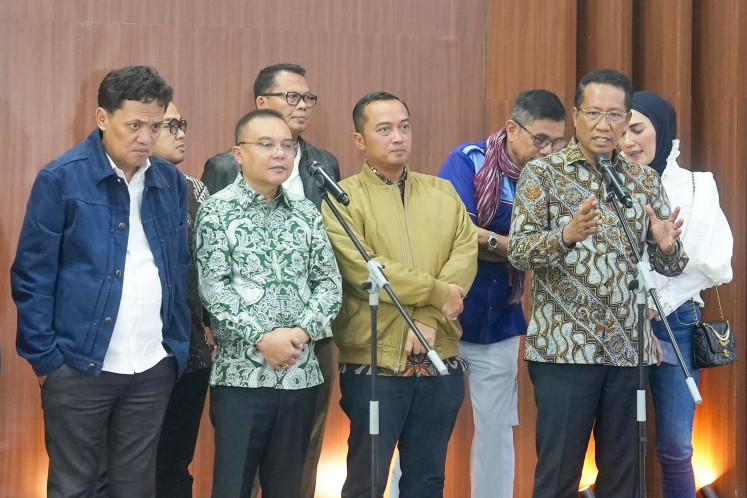Popular Reads
Top Results
Can't find what you're looking for?
View all search resultsPopular Reads
Top Results
Can't find what you're looking for?
View all search resultsExecutive column: Getting the hang of in innovation
The fast-paced telecommunication industry impels operators to consistently roll out new products and services at an accelerated speed to keep current and win new customers
Change text size
Gift Premium Articles
to Anyone
T
he fast-paced telecommunication industry impels operators to consistently roll out new products and services at an accelerated speed to keep current and win new customers. Erik Meijer, PT Indosat’s newly appointed chief marketing officer (CMO) and a household name in the industry, recently caught up with The Jakarta Post’s Mariel Grazella to speak on pushing the edge in telecommunications.
Question: You have worked with two other telecommunication operators. What would you say are the strategic essentials an operator must possess to win the game?
Answer: There are many conditions, the first being investments, of course. Telecommunications is always about allocating the right amount of investments at the right spot. The second would then be capitalizing on these investments in an innovative way. This innovation is what counts. Telecommunications is not an austere business, but one that is in constant evolution. As an example, an innovation originating from Indonesia was when Telkomsel introduced the pre-paid billing system, which was a change from the post-paid system.
Now, the nascent of Internet-based technologies has made it increasingly critical for telecommunication operators to be highly innovative given that the industry moves at high speed, and hence, each other’s competitors. Fast-moving consumer goods companies could still map out annual plans whereas weekly plans are even tough for us to execute because of this speed.
You have been out and about in the industry since the early 1990s. What would you say are the milestones the industry has achieved?
Indonesia has become one of the pioneers in mobile telephony, and that is one of the foremost achievements. The aforementioned pre-paid billing concept, as I said, was born here and has since become emulated globally.
The next milestone would be leapfrogging Internet-wise. The Internet became a phenomenon here when people straightaway accessed the Internet through their mobile devices, and this was what made Internet big in the country. People are even accessing the Internet more heavily through their mobiles compared to PCs whereas in other countries, people’s first experience with the Internet was via the personal computers first and then through mobile devices.
The other milestones which would gain the popularity of the social media, such as Facebook and Twitter, which has surprisingly grown at a faster rate compared to developed countries, such as the United States and those in Europe. This trend would play a great impact to telecommunication operators if they could take advantage of it in a good and proper way.
What would you say would be the future milestones the telecommunication industry would touch?
I think that the convergence between fixed mobile and mobile telephony would increasingly become visible, blurring the difference between computing and phone devices. Our activities will converge into a few gadgets only because, for example, our mobile phones would act as a remote control for televisions and air conditioners.
Devices would also become an increasingly social tool because, whoever we are, whatever we do and whatever we experience, would be visible in the clouds.
Telecommunication operators have to definitely ready themselves for this. Twenty years ago, it did not even cross our mind to embrace mobility, but look where we are today. This, of course, requires joint effort between the telecommunication operators and over-the-top content service providers.
Luckily, the Indonesian government took the fantastic decision 20 years ago to open up the telecommunication industry for competition. This fundamental element would help operators ready themselves for the changes.
You are now at the helm of PT Indosat, after making a mark at PT Telkomsel and the Bakrie telecommunications and media group. What made you join PT Indosat?
I have been deeply involved with people in Indosat since my arrival in Indonesia. They are smart people and some of them have acted as my superiors while others have became my colleagues. When I was no longer affiliated with Indosat, following their withdrawal of shares from Telkomsel and my moving to Bakrie Telecommunications, I kept on noticing that they had it all on paper — complete set of licenses, smart people and strong shareholders. Yet they were not growing as they should business-wise. This presented an interesting challenge for me on how to make the company’s achievement on par with what is written on paper.
How do you plan to repeat your achievements at your new post?
Of course, we have key performance indicators [KPI]. I have set these KPIs for the points I would like to see improvements in, observable in the increase in the number of customers, revenues, stock prices and other related elements.
If there are no signs of growth by my second year, then I should not be here. Wow, that sounds like putting myself up for getting hanged. But that is how leaders should be. We have to possess the courage to lay out the numbers we would like to achieve, and the time it would take us. If no significant improvements occur, someone better should be sought.
You have had experience in working in various corporate cultures, from one influenced by a state-owned enterprise to one with strong family nuances. What would you say are the striking differences between these corporate cultures?
When I joined Telkomsel, the company had just been set up as an independent company by Telkom and Indosat, which were both state-owned enterprises. However, the state-owned culture did not permeate Telkomsel strongly because of the presence of foreign investors. Since the company was just starting out, it was still a small organization, enabling it to move nimbly, creatively and with flexibility. However, bureaucracy grew stronger as the company grew in size and revenues.
Bakrie Telecommunications was also relatively young when I arrived, so it was at a similar stage when I had entered Telkomsel. However, the entrepreneurship vibe was strong because although it is a family business, the company is listed on the stock exchange.
Thus, the striking difference rests in the entrepreneurial spirit I felt at the end of my tenure in Telkomsel and at my start in Bakrie. I experienced in Bakrie what I had initially felt in Telkomsel. It was in Bakrie in which I was given the chance not only to help set up an operator, but also other subsidiaries, such as Vivanews, Bakrie Connectivity and a venture capital company providing incubator funds for start ups.
These experiences enriched my entrepreneurial knowledge on new businesses and convergence.










